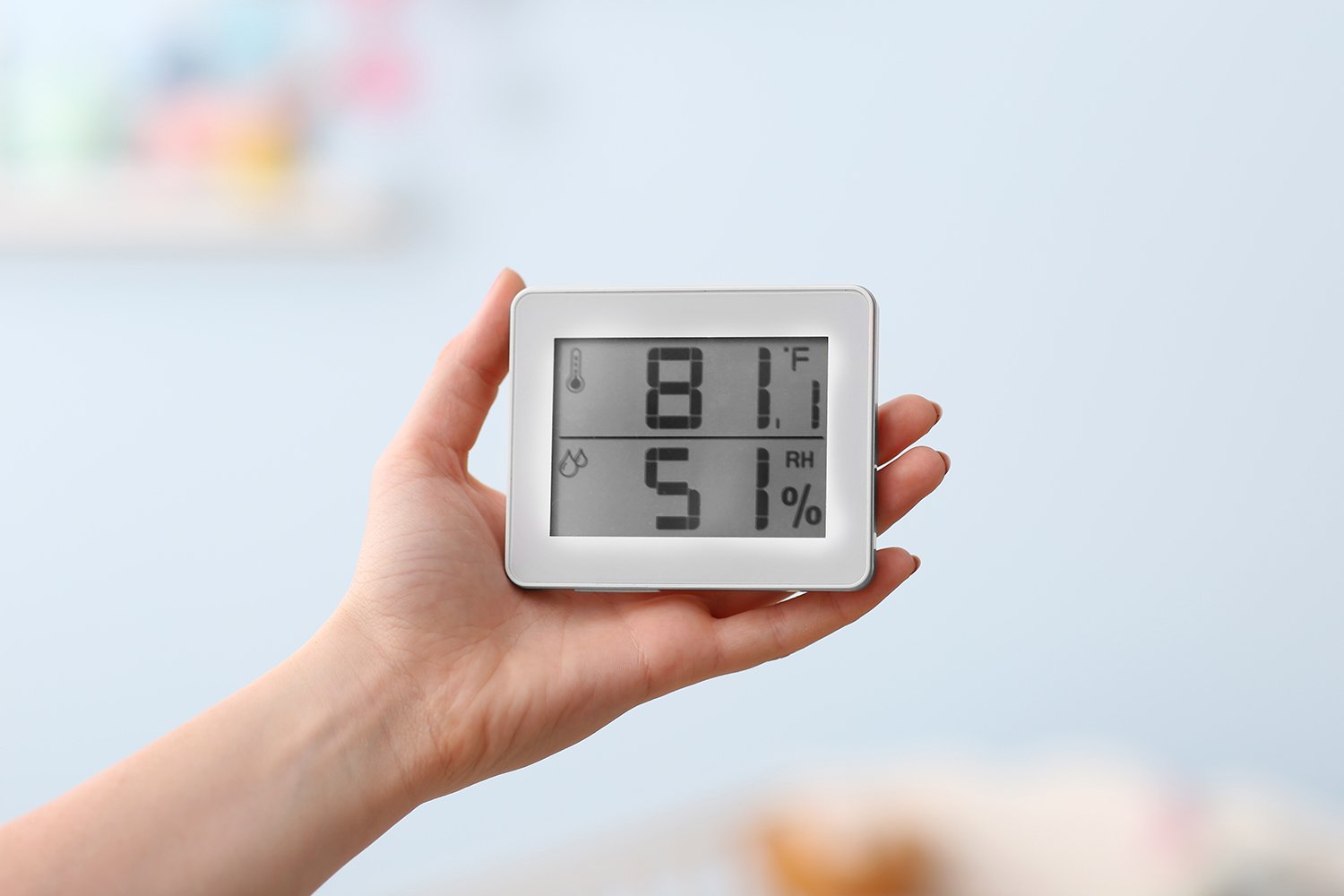Benefits of a Whole House Humidifier

Maintaining adequate moisture in the air is a real challenge for homeowners, especially in the winter months, and it’s a year-round concern for those who live in particularly dry climates such as Colorado.
Dry air can lead to a whole host of irritating health problems. Itchy, watery eyes, stuffy sinuses, a parched throat, and increased sensitivity to allergens are just a few of the conditions that can persist when the humidity in your house drops below 35%.
Several studies and industry experts recommend an ideal humidity level between 30 and 50 percent. Rise above 50% and condensation can start to build up on interior windows, and your home is more vulnerable to moisture-born issues such as wood rot and mold. Sink below 30% and problems arise at the other end of the spectrum, including cracking, warping, and shrinkage of materials such as flooring, windows, and doors.
What Causes Low Humidity in a Home?
Mostly, low humidity in a home is the result of the temperature outside. Cold air seeps in through gaps in windows and doors. But the bigger culprit is your air handler or furnace drawing in cold, outside air to heat your home. Even though the air gets heated, its humidity hasn’t changed. It’s the same dry air, only warmer.
Thankfully, low humidity in a home can be easily addressed by installing a whole-house humidifier to help regulate and control the internal moisture content of your home’s inside air.
Before we get to the many benefits of installing a whole-house humidifier in your home, let’s first address what a whole-house humidifier even is and how it differs from the portable units you can buy at places like Target or Home Depot.
What is a Whole House Humidifier?
Unlike the smaller units that plug into a single outlet and are often purchased to treat cold or flu symptoms, whole-house humidifiers integrate with your furnace and add humidity throughout your entire home.
The three most common types of whole-house humidifiers installed in homes are bypass humidifiers, fan-powered humidifiers, and steam humidifiers. Determining which type is best for your home may depend on things like its square footage, what type of furnace you already have, and whether your system is in close proximity to a hot water source.
Bypass Humidifier
A bypass whole-house humidifier connects to the return of your furnace or air handler. It is a passive system that utilizes a bypass duct and your system’s existing blower to push dry air over a water panel to increase the air’s humidity, which then recirculates back into your home.
Fan-Powered Humidifier
A fan-powered humidifier is a fan and humidifier combo that isn’t reliant on the furnace’s blower. It also doesn’t require any additional ductwork and mounts directly to the HVAC system. They do need to be plugged into a power source, which might require some additional electrical work.
Steam Humidifier
A steam humidifier uses a small pool of water to boil and produce steam that circulates through your ductwork and humidifies your home.
Which Whole House Humidifier Should I Get for My House?
Larger homes tend to require either a fan-powered or steam whole-house humidifier as these systems can support distributing moist air throughout larger spaces. Smaller homes may be able to get by with a bypass humidifier.
Top Benefits of a Whole House Humidifier
—
Improved Health. Can help resolve several health conditions caused by dry air, including painfully cracked skin, congested sinuses, dry mouth, and sore throat. Adding moisture to the air can also help relieve or prevent respiratory illness and viruses.
Ease of Use and Money Savings. Installing a whole house humidifier allows homeowners to automatically control their indoor humidity and keep it at a comfy level. This can also help homeowners save on energy bills as moist air feels warmer at lower temperatures.
Protect Woodwork and Furniture. Adds valuable protection for the wood and paper products in your home. Flooring, furniture, cabinetry, and even things like books are less brittle when the air in your home has higher relative humidity. Keeping your humidity within that ideal 30-50% zone will help protect your home and its furnishings for years to come.
Boost Your Home’s Value. A whole-house humidifier is a desirable and popular upgrade that will be a distinct selling point for potential buyers, especially in dry and colder climates.
Low Maintenance. Servicing your whole house humidifier is a relatively low-maintenance event. Homeowners can have this evaluated annually along with their regular HVAC maintenance.
How to Measure the Humidity in Your Home
Humidity can be measured with a hygrometer, which looks like a thermometer. Several digital hygrometers on the market today combine this humidity and temperature gauge together so you get two for the price of one.
A slightly more archaic yet still somewhat effective way to test relative humidity within your home is to place two or three ice cubes into a glass with water and wait a few minutes. If moisture doesn’t form on the outside of the glass, this might be a sign that the air is too dry. With that said, this method won’t give you a solid number, which might be useful in determining whether to invest in a whole-house humidifier.
Costs of Installing a Whole House Humidifier
The type of whole-house humidifier installed - bypass, fan-powered, or steam - will influence the overall cost. According to Home Adviser, the average homeowner spends $575 to install a whole house humidifier, but the general installed cost range can range between $400-$1200 depending on your home’s size and the complexity of the setup.
Whole House Humidifier Maintenance
Whole house humidifiers should be evaluated annually by your HVAC technician or home concierge team. A common maintenance item is the replacement of an evaporator panel filter once a year, along with some cleaning of the system to remove any mineral buildup or debris.
How to Resolve Dry Home Air in Boulder, Colorado
Boulder, Colorado has a dry and invigorating climate year-round, with relative humidity sinking to a low of 31.4% in March. These low humidity conditions can cause painfully dry skin and sinuses and can cause other pains in your home too. We can help you combat seasonal and year-round dryness in your Boulder home.
Are you looking to install a whole-house humidifier in your Boulder, Colorado home? We can help!
Willow is a luxury home concierge service based in Boulder, Colorado. We care about your home and giving you back your time to do the things you care about most.
How it Works



